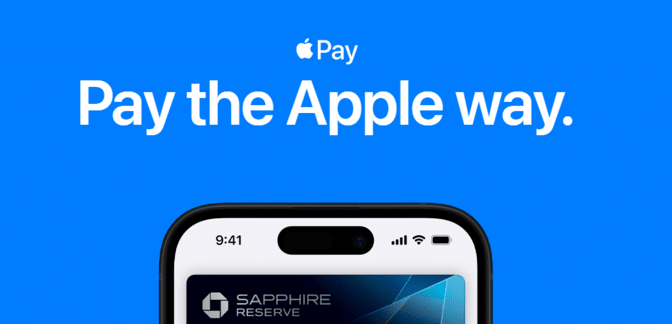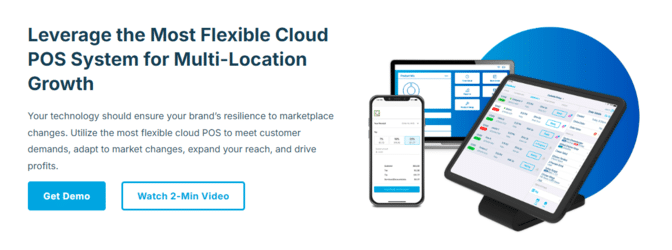When running a successful hospitality business, efficiency and seamless operations are key. This is where cloud-based EPOS (Electronic Point of Sale) systems can help improve your operation.
A modern cloud EPOS not only streamlines your sales and payment processes but also supports integrations that elevate every aspect of your business.
Having the right integrations connected to your EPOS system can make all the difference.
To give you a better idea of what you might need, let’s explore the best kinds of integrations for hospitality cloud EPOS systems that can help transform your operations, boost productivity, and enhance overall service quality.
Top Integrations to Consider

Integrating cloud EPOS systems with various tools can elevate your hospitality business’s performance, making operations more streamlined and customer experiences more memorable.
Here’s a deeper look into the top integrations to consider:
1. Reservation and Booking Software
Integrating reservation and booking platforms, such as OpenTable or SevenRooms, with your cloud based POS system ensures that table management and booking processes run smoothly:
- Benefits: Helps synchronise reservation data with real-time table availability, minimising double bookings and optimising seating arrangements. This lets staff prepare for guest arrivals more effectively, reducing wait times and improving service efficiency.
- Enhanced Guest Experience: Customers benefit from an organised reservation process, quick check-ins, and personalised service based on prior booking history.
2. Loyalty and Rewards Programs
Boost customer retention and encourage repeat business by integrating loyalty platforms like Paytronix or COMO with your EPOS:
- Drive Repeat Business: With loyalty program integration, customers can easily accumulate points and redeem rewards during transactions. This incentivises repeat visits and increases brand loyalty as guests feel recognised and rewarded for their continued business.
- Simplified Management: Loyalty program integrations automatically track and apply rewards, making it easier for both staff and customers to manage benefits.
3. Accounting and Financial Tools
Integrating accounting platforms like Xero or QuickBooks with your EPOS system is essential for streamlined financial management:
- Automated Data Sync: Sales data from your EPOS system can be automatically transferred to your accounting software, ensuring that your books are always up to date without manual data entry. This reduces errors and saves valuable time.
- Comprehensive Financial Reporting: Generate real-time financial reports that provide insights into cash flow, profit margins, and other financial metrics, helping you make informed decisions.
4. Inventory Management Systems
Integrations with inventory management tools like Nory offer real-time tracking and automated updates that improve stock control:
- Real-Time Tracking: With inventory management integrations, stock levels are adjusted automatically as items are sold, helping prevent overselling and understocking. This leads to better cost control and purchasing decisions.
- Replenishment Automation: Set thresholds for automatic stock replenishment notifications, ensuring your inventory stays well-maintained without manual checks.
5. Customer Relationship Management (CRM)
Integrating a CRM tool like HubSpot or Zoho CRM with your cloud EPOS system can personalise customer interactions and amplify marketing efforts:
- Personalised Service: CRM integration allows you to collect and access customer data, including preferences, purchase history, and feedback. This enables your staff to offer tailored experiences that foster stronger customer relationships.
- Targeted Marketing Campaigns: Utilise customer data to segment audiences and send targeted promotions, increasing the likelihood of repeat business.
6. Third-Party Delivery Platforms
Connecting your EPOS with third-party online ordering like Uber Eats or Deliveroo simplifies order management:
- Seamless Order Processing: Orders placed through delivery apps are automatically sent to your EPOS system, reducing manual entry and the risk of errors. This leads to faster, more accurate order fulfilment.
- Centralised Control: Manage all delivery orders from your POS systems’ dashboard, streamlining the process for both the kitchen and front-of-house staff.
7. Staff Scheduling and Management
EPOS integration with Workforce management tools like Harri or Nory simplify staff management:
- Optimised Scheduling: Integration allows managers to create staff schedules based on sales forecasts and peak hours, ensuring the right number of staff members are available when needed. This helps prevent over- or understaffing, reducing labour costs while maintaining service quality.
- Performance Tracking: Employee performance data can be tracked, such as individual sales contributions and productivity metrics.
These integrations empower hospitality businesses to create an interconnected system that enhances every facet of operations—from customer interactions to backend efficiency—ultimately boosting overall productivity and profitability.
Emerging Integrations in Hospitality Tech

The hospitality industry is continually evolving, with new technology integrations shaping how businesses operate and interact with their customers.
These are some of the most impactful emerging integrations in hospitality tech:
1. AI-Based Integrations for Data Analysis
AI is transforming how businesses in the hospitality sector gather, analyse, and act on data.
Integrating AI-based tools with cloud based POS systems can provide insights that drive better decisions:
- Enhanced Customer Insights: AI-based data analysis tools can track and analyse customer behaviour, preferences, and spending patterns. This lets businesses tailor marketing campaigns, personalise guest experiences, and create targeted promotions.
- Predictive Analytics: AI integrations can predict future trends based on past data, helping businesses prepare for peak periods, adjust inventory, and plan staffing accordingly. This approach minimises waste and improves resource allocation.
- Operational Efficiency: AI can assist in automating repetitive tasks, like inventory replenishment and report generation, freeing up staff to focus on customer service and other critical areas.
2. Contactless Payment Solutions and Digital Wallets
The demand for convenience and speed in transactions has made contactless payment solutions and digital wallets essential integrations for modern hospitality businesses:
- Enhanced Guest Experience: Contactless payment methods like Apple Pay offer customers a quick and seamless way to pay. This not only speeds up the checkout process but also meets the growing expectation for hygienic transactions.
- Improved Payment Security: Contactless payment solutions are equipped with advanced security features that protect customer data and reduce the risk of fraud.
- Wider Payment Options: By integrating contactless payment systems, businesses can offer flexible payment options that cater to diverse customer preferences, boosting customer satisfaction and potentially increasing sales.
3. Integrations Supporting Sustainability
Sustainability is a growing focus for both businesses and customers in the hospitality industry.
Integrating eco-friendly tools that support sustainability can help businesses meet these expectations while improving their bottom line:
- Reducing Food Waste: Waste reduction tools such as Winnow track food usage and waste patterns. Through AI-powered image recognition and data analytics, these tools can identify areas where food waste is most prevalent and suggest adjustments to inventory and menu planning. This leads to cost savings and aligns with sustainable business practices.
- Eco-Friendly Inventory Management: Integrations that monitor and manage inventory efficiently can prevent over-ordering and reduce spoilage, supporting a more sustainable supply chain.
- Customer Engagement with Sustainability Initiatives: Sustainability-focused integrations can also inform customers of a business’s eco-friendly practices, fostering a positive brand image and appealing to environmentally conscious consumers.
Emerging integrations in hospitality tech are setting the stage for a more data-driven, customer-centric, and eco-friendly future.
By adopting these tools, hospitality businesses can stay competitive, improve their operations, and meet the evolving expectations of their customers.
Tips for Choosing the Right Integrations

Selecting the best integrations for your cloud EPOS system is crucial to ensuring that your business reaps maximum benefits.
Below are some key tips to guide you in making the right choices based on the type and size of your business’ unique needs:
1. Considerations Based on the Type and Size of Your Hospitality Business
Integrations should align with your specific business needs and scale.
Here’s how to approach this based on different types and sizes of hospitality businesses:
- Small Cafés and Independent Restaurants: Focus on integrations that address core needs without overwhelming your system or budget. Essential integrations might include basic reservation software, simple loyalty programs, and inventory management tools.
- Mid-Sized Restaurants and Chains: For businesses with higher traffic and multiple locations, consider more robust integrations that support multi-location management, CRM systems, and employee scheduling tools. These standardise operations and maintain consistency across all sites.
- Large-Scale Hotels and Hospitality Groups: Larger operations need scalable integrations. This includes integrating with property management systems (PMS), accounting software, CRMs, and real-time inventory management systems.
- Type of Establishment: A fine dining restaurant might benefit more from high-level reservation and customer experience integrations, while a fast-casual eatery might prioritise third-party delivery platforms and staff management tools.
2. Budget and ROI Analysis
Investing in integrations should be seen as a strategic move that enhances your profitability over time.
Conduct a budget and ROI analysis to ensure that the integrations you choose are both cost-effective and beneficial in the long run:
- Initial Costs vs. Long-Term Savings: Weigh the initial setup costs of integrations against the potential savings they offer in terms of time, labour, and operational efficiency. For instance, an investment in automated inventory management may have upfront expenses but can significantly reduce waste and manual tracking costs over time.
- Subscription and Maintenance Fees: Some integrations come with ongoing subscription fees or maintenance costs. Make sure to factor these into your budget and compare different providers to find the best value for your needs.
- Projected ROI: Evaluate how each integration can contribute to your revenue. For example, integrations with loyalty programs may encourage repeat business, while employee scheduling tools can reduce labour costs.
- Trial and Pilot Programs: Take advantage of free trials or pilot programs offered by integration providers. This allows you to test the compatibility and effectiveness of the software before committing to a long-term contract.
- Integration Compatibility and Future Growth: Choose integrations that are compatible with your current cloud EPOS system and can scale as your business grows. This ensures you won’t need to overhaul your entire system when your operations expand, saving on future costs and disruptions.
Selecting the right integrations requires balancing practicality, financial feasibility, and strategic fit.
By carefully considering your business type and scale, and performing a thorough budget and ROI analysis, you can make informed decisions that enhance your cloud EPOS system’s capabilities and support your long-term business goals.
Integrations for Boosting Functionality

Strategic integrations can turn a standard cloud EPOS system into a powerhouse of functionality, tailored to meet the diverse needs of a hospitality business.
Without integrations, an EPOS system may handle basic sales and payment functions effectively, but it won’t fully maximise efficiency. By incorporating certain integrations, businesses can unlock several benefits:
- Streamlined Operations: Integrations enable your EPOS system to communicate directly with other tools and platforms, such as reservation systems and kitchen display units. This leads to smoother service delivery, faster transaction processing, and less operational friction.
- Enhanced Customer Experience: Integrations like CRM and loyalty program software ensure that customer data and preferences are accessible at every point of service. This allows you to offer personalised service, targeted promotions, and a superior guest experience.
- Unified Management of Multiple Business Functions: From inventory tracking and accounting to employee scheduling and performance monitoring, integrations centralise these functions within the EPOS system. This not only makes it easier to track of day-to-day operations and provides a view of the business’s health in real time.
- Improved Data Accuracy and Reporting: When systems like inventory management, financial tools, and customer feedback platforms are integrated, data flows seamlessly between them. This synchronisation ensures that reports generated by the EPOS system are up-to-date and accurate, giving decision-makers more reliable insights for strategic planning and performance reviews.
- Flexibility and Scalability: Integrations offer the flexibility to customise your EPOS system to match the unique needs of your business. As your business grows or your needs change, you can add or modify integrations to scale operations without overhauling your entire system.
- Reduced Costs and Increased Efficiency: Automation helps reduce labour costs by minimising the need for manual tasks and repetitive work. For example, integrating accounting software can streamline invoicing and payroll processing, saving both time and resources.
In general, integrations empower a cloud EPOS system to become more than just a transactional tool; they transform it into a solution that supports every aspect of a hospitality business.
Key Benefits of Cloud EPOS Integrations

1. Improved Operational Efficiency
Integrating your cloud EPOS with other essential business tools streamlines the flow of information and reduces the need for manual input across different systems. This leads to:
- Automation of Repetitive Tasks: Time-consuming processes like updating inventory, managing orders, and processing payments can be automated through integrations.
- Real-Time Data Synchronisation: Integrated systems ensure that information is updated in real time. For example, when a sale is made, inventory counts adjust automatically, and accounting records are updated instantly.
- Simplified Workflow: With interconnected systems, employees can navigate fewer platforms to accomplish tasks. A single dashboard might display sales data, bookings, and inventory, speeding up decision-making and day-to-day operations.
2. Enhanced Customer Experience
Customer satisfaction is a cornerstone of success in the hospitality industry. Integrations with a cloud EPOS system help elevate the customer experience by enabling personalised and efficient service:
- Personalised Interactions: Integrating with CRM software allows businesses to store customer preferences and feedback. This helps staff offer tailored recommendations and promotions.
- Loyalty Programs and Promotions: Integrations with loyalty platforms enable seamless point collection and reward redemption, encouraging repeat visits and a positive connection with your brand.
- Faster and Contactless Payments: Payment integration supports a range of payment methods, speeding up transaction times and giving customers flexibility in how they pay.
- Enhanced Order Accuracy: When orders are processed through integrated systems that link the front of the house to the kitchen and bar, the chances of errors decrease. This ensures customers receive exactly what they ordered, which boosts satisfaction and reduces complaints.
3. Streamlined Staff Management
Effective management of employees is vital to running a smooth hospitality business, and cloud EPOS integrations can make this easier and more efficient:
- Automated Scheduling: Integrations with workforce management tools help automate shift scheduling, ensuring that staffing levels are optimised to match peak hours and special events. This reduces the burden on managers and improves coverage without overstaffing.
- Performance Tracking: By linking EPOS data with employee management systems, you simplify performance tracking. Metrics such as sales per hour, upsell success rates, and table turnover can be analysed to reward staff or provide targeted training.
- Time Clock Integration: Integrating time-tracking software with your EPOS system allows employees to clock in and out through the same platform, simplifying payroll processing and maintaining records.
- Streamlined Communication: Communication integrations allow managers and staff to send real-time updates, shift changes, and announcements directly within the EPOS system, improving coordination and response times.
Conclusion
Incorporating the right integrations into your cloud EPOS system can transform how your hospitality business operates and serves its customers.
From AI-driven data analysis that sharpens decision-making to contactless payment solutions that cater to modern customer preferences, and sustainability-focused tools that align with eco-friendly practices, these emerging technologies offer substantial benefits.
By carefully considering your business’s type, scale, and budget, and focusing on integrations that deliver a tangible ROI, you can create a streamlined, efficient, and future-ready operation.
Embracing these integrations not only enhances operational efficiency and customer satisfaction but also positions your business as an innovative leader in the ever-evolving hospitality landscape.
To take your hospitality business to new heights, contact NFS Hospitality to find the right cloud EPOS for your operation.




